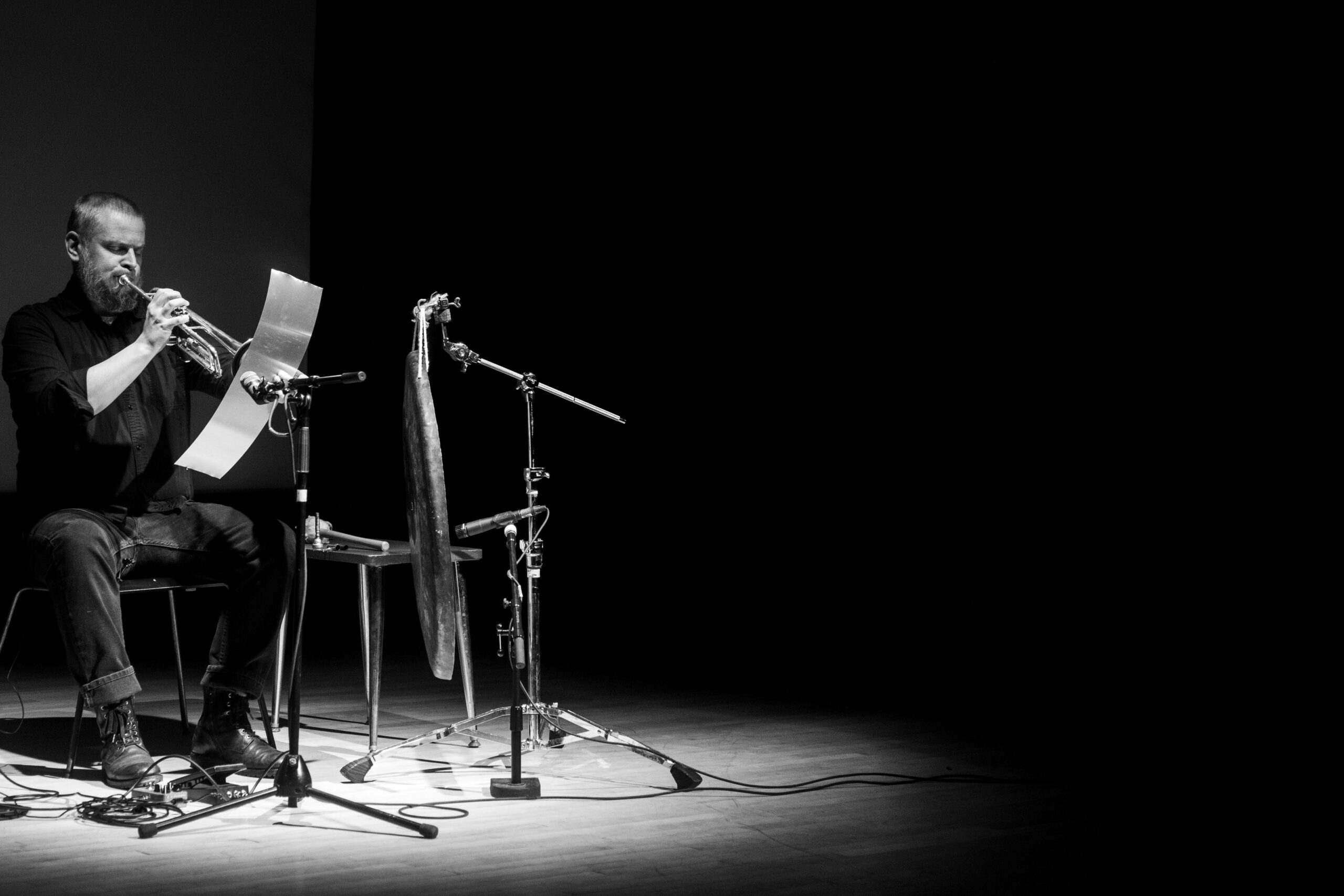From trumpeter and composer Nate Wooley:
I haven’t counted my last two birthdays. I figure that, since I didn’t really “live” those years, I shouldn’t have to add them to my age. But, since the easing of restrictions, I’ve been able to go out and play some music, and that’s getting me somewhere closer to life. As was the case before the pandemic, I get to play a little in New York and more abroad; as was the case before the pandemic, I get more concert opportunities than some and less than others. But unlike before the pandemic, my relationship to the act of performing is deeper; I feel the communion now in a way I didn’t before. This may simply be an effect of some new goodwill (mine and the audience’s) found as we all encounter each other again after so much time apart. But I think, more likely, my newfound appreciation comes from something more subtle that has changed inside me.
I’ve recently seen a lot of friends in person for the first time in two years, and our typical, numerous small-talk questions—”How is your family? Where do you play next? Where did you eat last night?”—have been replaced by “What did you do during the lockdown?” In essence, Jazz Right Now is asking me this same question and, instead of giving the conversational, green-room response—“I worked” (lucky), “was healthy” (lucky), “spent time thinking” (lucky?), “all was cool” (very lucky)—here is my real answer. What did I do during the pandemic? I grew up.
For all its seeming simplicity, this answer is problematic; it forces a follow up; it demands a conversation. What does it even mean to grow up? Well, it means a lot of things, of course, but to me it’s developing one’s ethics, becoming more emotionally stable and mature, taking better care of oneself and one’s relationships, learning to treat your body with respect. I did all of these things to one extent or another (one could say my mid-life crisis happened to coincide with a global one), but this isn’t a place for confessional writing, and I’m not the person to do it, so I will concentrate on what matters here: the musical.
Maturing musically has been a lot different than my expectations, and I imagine—hope—that the surprises of growing up as a musician will continue to surprise me. As a kid, I was taught that maturation meant increasing raw ability: How fast, how high, how intricate, how complex can you be? Where does your music land in the metrics? What are your metrics, and how do they coincide with what is being lauded by the world around you—industry, social media, print criticism, peers—those that you perceive as holding the key to your success? Instead, I’ve discovered making music for me is not so easily measured; it’s more like an imaginary field: it expands and contracts; its borders are fluid; and its contents are freely exchangeable. After this period of post-crisis maturing, I see how little most of those previous, easily quantifiable things matter. After thousands of hours spent trying to tongue just a little bit cleaner, just a little bit faster, I am comfortable with the idea that technical improvement will be gradient, if at all. Now, I follow ideas down rabbit holes for the joy of doing it and seeing where the trumpet can go, not necessarily in order to prove I can do it, but because it is so much fun. And no longer do I feel self-limited to music I think of as the avant-garde, the progressive, the radical. I take great joy in moving from diatonic melody to pure sound and back again. Sound is a field, and life is too short to shut off the part of myself that loves the things I love. And with that discovery—or maybe it’s just an admission—I’ve gained a confidence in my music that feels new.
That is all fine and well, but we live in a society in which making things counts. The Protestant work ethic is alive and well in me, and my revelations haven’t been made sitting in a field of heather as I while away my life in poetic thought. The full force of my “field” is at play in the expansion of some music very important to me: a new Columbia Icefield record out this summer on Pyroclastic, an exciting expansion of the Mutual Aid Music world being recorded by some of my favorite international musicians, and special concerts in 2022 like playing with the Harry Bertoia instruments, performing Éliane Radigue in New York and beyond, and even the possibility of putting Seven Storey Mountain 6 together for some behemoth shows in Europe. I look forward to it all, not just because it is music I love, but because I will get to do it with a newly rediscovered sense of those I do it with and for.
Cover Photo Credit: Julia Dratel

